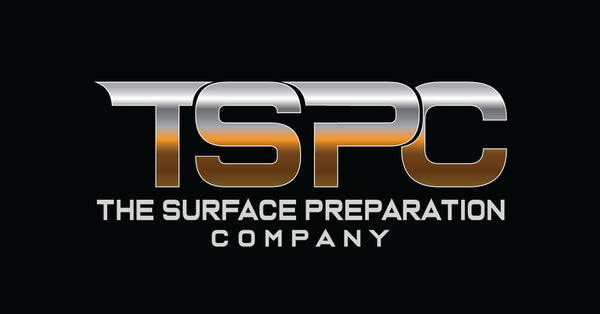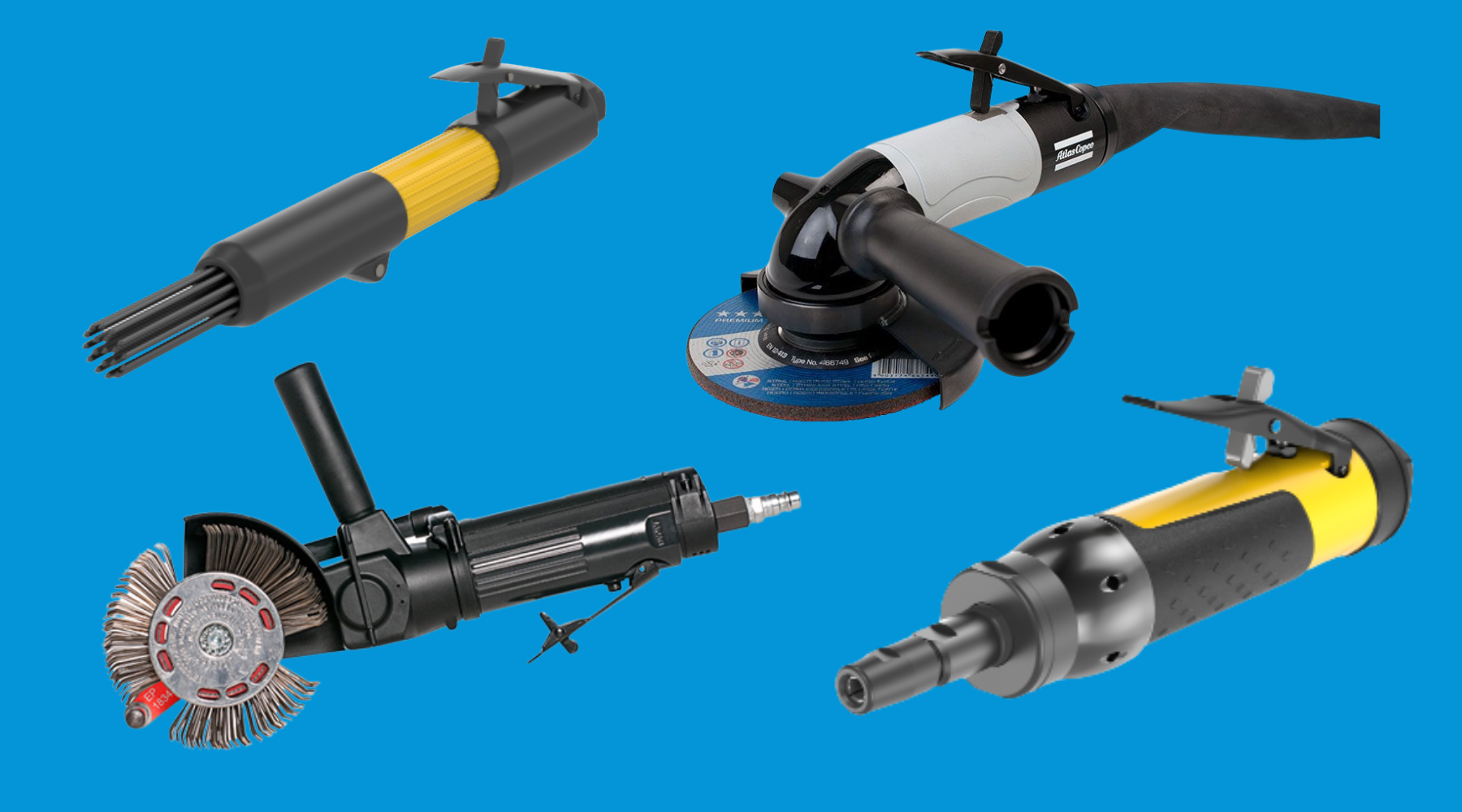Advantages of Pneumatic Tools
Whilst your initial investment in pneumatic tools may be higher, it is the total cost of ownership that must always be considered. Air tools offer many significant advantages that may result in significant gains in productivity and overall savings for your business.
Here are some key benefits of pneumatic tools you may like to consider:
✔ Superior ergonomics
For high productivity tools, such as angle grinders, the most important ergonomic factors are weight and vibration levels. Holding a heavy grinder throughout an entire workday puts stress and strain on the operator.
If the operator is also exposed to high vibration levels from the grinder, the situation becomes even worse. Not only will the working process take more time, the operator runs an increased risks of future work related injuries, including sick leave, as the result.
✔ Power to weight ratio
Pneumatic grinders offer a better power-to-weight ratio than electric grinders. Simply put, pneumatic grinders develop far more power in relation to their size and weight compared to most other motor types.
Electric tool manufacturers often classify the power of their tools by the wattage fed into the electric motor. What's not stated in electric tool specifications is that the power fed into the electric motor is not the same wattage that is delivered to the spindle. In fact, often only 50% to 60% of the rated wattage actually arrives to the abrasive mounted on the tool.
Conversely, with pneumatic grinders, power in equals power out. An air tool rated for one horsepower will provide one horsepower of material removal power at the spindle.
✔ Increased productivity
Air tools have a 100% duty cycle, meaning they are designed to run 24 hours a day 7 days a week.
A pneumatic grinder is also not sensitive to overloads and can maintain its stated power, giving a higher production rate. The operator using an electric tool has to be careful not overload the tool, as this will damage the motor, leading to costly repairs or replacement of the tool.
✔ No risk of electric shock
When used in environments where moisture, conductive materials, and flammable liquids are present, damaged cords and wires of electric tools pose a risk to operator safety with increased potential electrical shock.
Furthermore, metal fabricators often rely on flammable chemicals, such as acetone, to clean and prepare metals prior to welding. Spilled liquids can be quickly ignited by faulty electrical cords.
Vapour concentrations can be higher when working in confined spaces, such as those found in the mining and tank cleaning industries. As air tools use no electricity, and rotary vane air motors generate no spark, risks are substantially reduced.
✔ High performance in harsh environments
The two biggest threats affecting electric tool life are dust and heat. Electric motors have a rated duty cycle, which must be respected and, without a periodic rest, the heat generated by the motor itself will diminish performance and eventually cause premature tool failure.
Additionally, the generation of particles is inherent in any material removal process. With their open grate style motor compartments required for cooling, electric motors are more susceptible to the accumulation of dust and debris.
In contrast, air tools are designed specifically for use in foundries, shipyards, off-shore oil platforms, power plants, metal fabrication facilities, and petrochemical refining plants.
✔ Ease of servicing
An industrial grade grinder is not a disposable piece of equipment. They can be periodically rebuilt and serviced over many years.
The average electric tool maintenance interval is between 60 and 120 hours, after which the tool will typically need new brushes.
Comparatively, an industrial grade air grinder can run for 2000 hours between service intervals.
OPINION
Regardless of the project you are handling, everyone's goal is to get the process completed as soon, and as safely, as possible.
In demanding industrial environments, the 100% duty cycle rating and long service intervals of pneumatic tools provide significant gains in productivity that will far outweigh your initial investment.
Your operators will also achieve significantly higher production levels and feel safer, and more comfortable, doing so.
TSPC is proud to recommend Atlas Copco and Montipower as our preferred suppliers of pneumatic tools. Their reputations for quality, innovation and performance are second to none!
You can view our selected range of pneumatic surface preparation tools here

